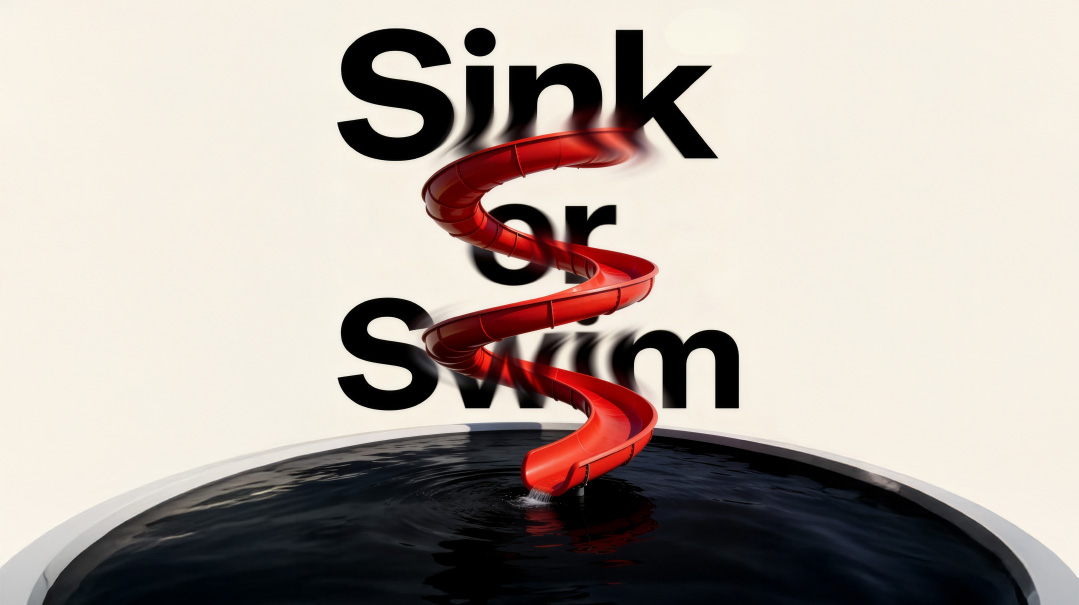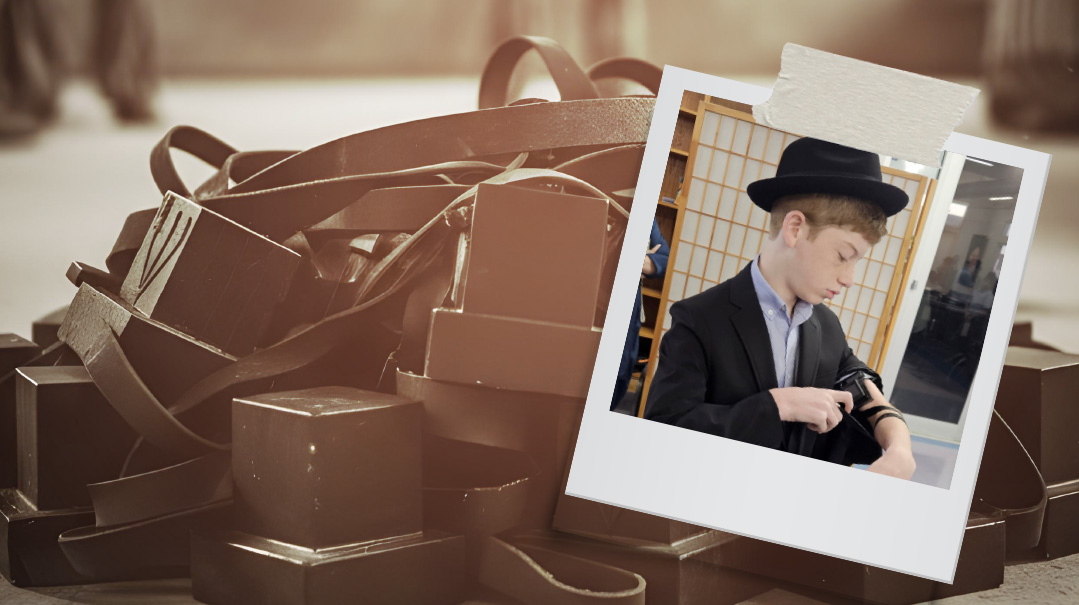Catch of the Day
| July 4, 2023We reeled in the line like we were fighting for our lives

Trigger: Catfish
Location: The lake at Zucker’s Glen Wild Country Club, New York
For most people, looking into someone’s fish tank is an easy way to make small talk.
The same goes for me, in most homes. But every so often, I’ll peer through the glass and admire the fish — until I see that evil smirk, those long whiskers, that drab, flabby body — and then I’m triggered. Yes, I’m a soon-to-be 42-year-old, yes, I’m a school principal and a camp director, so yes, perhaps I shouldn’t admit this, but it’s true: the mere sight of a catfish, no matter the size, makes my palms go clammy and my heart pound and my stomach sink — until my angst is washed away as I’m overtaken by the memories of my childhood summers.
We spent our summers in Sheldrake Dorms, an average early ’90s Catskills bungalow colony. Hallways weren’t in style, I guess, because our bungalow consisted of two bedrooms and a small kitchen. My five sisters and one of my brothers shared the second bedroom, while my older brother Simcha and I slept on a pullout couch in the kitchen. The shower sounded like a dying cat when the “hot” water was turned on, and the screen door didn’t screen out much, so there were mosquitoes everywhere.
For a ten-year old, it was nothing short of Gan Eden.
Sundays were special. We started with the 8:30 Shacharis across the street at Vacation Village (I still hadn’t discovered the inyan of davening at the 9 a.m. minyan). There was no day camp on Sunday, so after davening, my father would drive me to Yeshiva of South Fallsburg 15 minutes away, where we usually learned Minchas Chinuch or Maseches Succah.
As we entered the beis medrash, we were assailed by that musty old-book smell, which I can vividly recall, solemnly proclaiming, “This is a makom kadosh.” It was still the middle of the yeshivah’s zeman, and the booming kol Torah could almost knock you off your feet. It seemed crazy to me that they still had yeshivah in July — in the Catskills no less. (The last laugh was on me, when I had the privilege of learning for a year in South Fallsburg for beis medrash.)
The excitement happened after lunch. Almost religiously, we three boys and my sister Sori (there’s one like that in every family) climbed into the back and the “backety-back” of our blue station wagon for an adventure that defined our childhood: a fishing trip to Zucker’s Lake.
We stopped off first at Menorah Lake to catch little fish that we’d use as bait for the big ones. The thrill of filling up our bucket with small minnows was always mixed with the utter derision for the catfish that inevitably latched onto our hooks. Getting one off the hook was no easy task, because they had sharp fins on their backs; we were convinced that just touching it could finish you forever, and we always turned to Daddy to unhook the catfish and cast them away. Sometimes, he showed us, they’d swallowed the hook so deeply that he had no choice but to sacrifice one of our rods to rid ourselves of our number-one adversary. To this day, the sight of even the smallest-sized catfish has me going numb.
It took a half hour or so to catch enough minnows for our bucket. The walk back to the car was treacherous as we tried to make sure none of them fell out. On our drive to Zucker’s lake, every bump on the old mountain roads was met with fear as we looked to the back to make sure our lovely little ones were still swimming safely. If one sloshed out, chaos ensued; we risked our lives diving headfirst anywhere and everywhere to get the bait back in the bucket.
Once we drove past Woodridge and turned off the main road, we knew we were almost there. Pavement turned to dirt as our car trudged its way toward our destination. When we finally arrived, the car doors opened (manually, of course), and out we tumbled.
We had specific jobs: One of us took the rods (not me, I was afraid the lines would tangle); another handled the net, and Daddy was the only one trusted to carry the now-steaming bucket of tired minnows (the car had no air conditioning). Invariably, one or two of them wouldn’t survive the trip, but my father instructed us to keep them as lures for when we’d run out of live bait.
Walking from our car, equipment in hand, toward the lake was a seminal moment: We are here. We have arrived. It was like Opening Day and Color War combined, and we were full of hope and anticipation. What would the next two hours bring?
We slowly picked our way through the tall grass over jumping toads and through swathes of mosquitoes, until — there it was, right in front of us! — we encountered the most beautiful sight: shining, glittering Zucker’s Lake. The home of the pickerel, the great white shark of the Catskill lakes.
Technically, the pickerel is a member of the pike family. To us, it was a worthy adversary. Pickerel have very long and narrow greenish-brown bodies, with lots of sharp teeth — really a scary fish. This was our weekly challenge.
But before we could get started tackling our foe, our primary task was to untangle the rods that had, of course, gotten tangled. This was difficult, not the time to hang around Daddy, because it took extreme focus and steady hands to locate the loops that would set the strings free.
Finally, we were ready. We set the minnows on the hook, placed the float strategically on the line, and checked behind us to make sure there was no one standing there (anyone who’s ever taken their kids fishing knows what that “Owwww! The hook is stuck on my finger!” cry sounds like.) And then we pressed our thumbs on the reels and cast our rods deep into the lake.

It wasn’t always perfect. Sometimes the minnow would fly off during the cast. (“We have only eight more, be careful!”) But once we got off a decent cast and the float was lying peacefully in the center of the lake, anticipation would build. The tension was palpable as we stood and waited — and waited and waited; no talking, just watching. Sometimes there was a Mets game on the radio, and if we could get a signal, the ballgame broadcast broke the silence.
“Wait, where’s my float? I got a bite!” one of us would yell. But it was a mistake, we’d only lost sight of it for a moment.
“Look at the one o’clock direction, your float is still there,” Daddy would say, pointing.
And then it really happened. The float would bob a little, then stop. A little more. We’d look to Daddy for the signal.
“Not yet, not yet… wait, wait,” he’d say.
Then suddenly, flash! The float would disappear beneath the surface.
“Now!”
That was all we needed to hear. We reeled in the line like we were fighting for our lives. The thrill was topped only by watching the joy on Daddy’s face as he helped us battle the Beast of the Catskills.
If we were lucky enough to reel the pickerel all the way to the shore and securely into the net Daddy used to schlep the fish onto the grassy knoll, the ensuing celebration was like a team winning the World Series — only it was your team, and you were the MVP.
Next came high fives and pictures (if we had any film left), the net with the pickerel held aloft like a trophy. Just one of those moments made the day a smashing success. On really lucky Sundays, we caught two or three.
A couple hours (and many mosquito bites) later, we drove back home and rode into Sheldrake Dorms like the conquering heroes we were. This was before cell phones, so no one knew how our day had gone, and my mother was waiting, my sisters were waiting, everyone was waiting to see how we did.
I still remember that walk from the parking lot, a real walk of fame as we returned, triumphant, to show off our catch.
We got old newspapers to hold the fish, and then the knives were sharpened so Daddy could clean the fish. The cleaning was always a spectacle in and of itself: scales flying everywhere as Daddy tried to salvage some edible parts to eat. Pickerel may be a great game fish, but it’s skinny and bony. But Daddy invariably scraped together a few “delicious” pieces, which he wrapped in separate foil to keep the fish apart from the hot dogs.
When Daddy pulled the fish off the grill, we grimaced. Do we have to eat this? we thought of the pickerel, which is a lake fish and doesn’t have the best taste.
Finally, the meal was ready, and we’d sit around eating our fish (Daddy) and hot dogs (the rest of us). The only thing better in our minds was the following Sunday, when we’d get to do it all over again.
Rabbi Ari Schonfeld is the menahel of Yeshiva Ketana of Manhattan in New York City and the director of Camp Aish in Woodbourne, New York. He ran the Night Seder America program during Covid from his home in Clifton, New Jersey.
(Originally featured in Mishpacha, Issue 968)
Oops! We could not locate your form.







